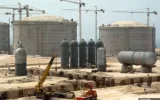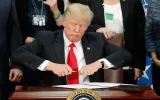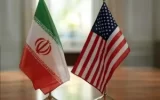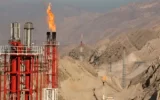
The Iran LNG project, which began in the 1980s with the aim of making Iran a major player in the global liquefied natural gas market, is now facing numerous technical and economic challenges. Despite the signing of a new memorandum of understanding between the Iranian Natural Gas Liquefaction Company and the Petroleum Industries Engineering and Construction Company, experts believe that without cooperation with Western companies, the implementation of the project will be impossible.

The Trump administration has sanctioned the Iranian shipping giant in new, draconian sanctions against Iran's oil and gas sales.

Persian Gulf Holding, with its massive $2 billion plan to build a 5,000-megawatt solar power plant, is seeking self-sufficiency in energy supply and reducing dependence and pressure on the national grid.

News of progress in the Iran-US nuclear talks eased investors' concerns about disruptions to oil supplies and helped stabilize prices over the past business week.

As the United States reimposed sanctions on Iranian oil exports, crude oil prices rose in global markets.

OPEC+'s Nightmare Interpretation in the Iran-US Nuclear Symphony Oil and energy investors are anxiously watching the Tehran-Washington nuclear talks and preparing themselves for the major price shock the market will experience. On the other hand, the risk of a no-deal and a dream between Iran and the US also threatens the stability of global markets.

According to the Minister of Oil, memorandums of understanding have been signed to expand Iranian and Iraqi oil cooperation in various fields, including offshore exploration and the transfer of associated gases from Iraqi border fields to Iran to supply feedstock for NGL units with the participation of the private sector.

A possible agreement between Iran and the United States could lift Washington's sanctions on Iranian gas exports to Pakistan and revive the Peace Gas Pipeline to ensure Islamabad's energy security.

After a long period of stagnation and uncertainty over the fate of the Kish gas field development plan, new news is now reporting progress in drilling in the field and the completion of the ninth well; an event that coincides with rumors of the field being transferred to Persian Gulf Holding and has also raised speculation about the role of Touraj Dehghani, CEO of Pars Oil and Gas. Is the Kish gas field on the verge of a high-profile transfer to the petrochemical sector?

The CEO of the Central Iranian Oil Company said: The company has prepared 11 investment packages worth about $9 billion for the development of gas fields, which, once operational, will increase the country's daily gas production capacity by about 100 to 140 million cubic meters.










